
Ep. 519 Transplantation for HCC: Who, When, and How?
The process of liver transplantation involves many complexities, and each patient's path to transplant is unique. To offer insider perspectives on this process, Dr. Zachary Berman sits down with transplant and hepatobiliary surgeon Dr. John Seal, as well as transplant hepatologists Dr. Heather Patton and Dr. Steve Young. Physicians, nurses, nurse practitioners, and physician assistants can follow this link to earn CME / CE credits for completing an accredited learning activity related to this discussion: https://www.cmeuniversity.com/course/take/125740 --- This podcast is supported by an educational grant from AstraZeneca Pharmaceuticals and Boston Scientific. --- SYNPOSIS The panel begins by discussing the multidisciplinary pre-transplant evaluation process, which assesses factors such as liver function, comorbidities, surgical risk, and the availability of psychosocial support. Once a patient is listed for transplant, they enter a system that prioritizes those with the highest Model for End-Stage Liver Disease (MELD) score. During the waiting period, several comorbidities should be carefully monitored. Dr. Seal explores the impact of portal vein hypertension and portal vein thrombosis, explaining how these conditions may necessitate intraoperative thrombectomy or bypass. Dr. Patton and Dr. Young focus on considerations for using anticoagulation in patients with a high baseline bleeding risk and selecting the appropriate anticoagulant for patients listed for transplant. For patients with hepatocellular carcinoma (HCC), eligibility for MELD exception points may depend on factors such as time spent on the waiting list, adherence to the Milan criteria, and the presence of extrahepatic complications of liver disease. The panel also discusses bridging therapies to transplant, including Y90 and TACE. In the peri-transplant phase, they highlight innovations such as living donor transplants, liver perfusion pumps, and the use of hepatitis C- and HIV-positive organs. Finally, the discussion turns to post-transplant considerations, including surgical complications, organ rejection, immunosuppression, predictors of HCC recurrence, and long-term surveillance. --- TIMESTAMPS 00:00 - Introduction 01:16 - Current Landscape of Liver Transplantation 03:22 - Transplant Evaluation Process 09:48 - Timeline from Listing to Transplantion 11:16 - Treating Portal Vein Thrombosis and Hypertension 18:44 - MELD Exception Points 22:05 - Bridging Therapies 25:34 - Peri-Transplant Considerations 30:53 - Post-Transplant Period 37:39 - Repeat Transplantation --- RESOURCES Model for end-stage liver disease (MELD) and allocation of donor livers (Wiesner et al, 2003): https://www.gastrojournal.org/article/S0016-5085%2803%2950022-1/fulltext Liver transplantation for the treatment of small hepatocellular carcinomas in patients with cirrhosis- Milan Criteria (Mazzaferro et al, 1996): https://pubmed.ncbi.nlm.nih.gov/8594428/ Validation of the prognostic power of the RETREAT score for hepatocellular carcinoma recurrence using the UNOS database (Mehta et al, 2019): https://pmc.ncbi.nlm.nih.gov/articles/PMC6445634/ CME Accreditation Information: https://f7cae4ec-b69e-490d-9e0f-19b16a6f146d.usrfiles.com/ugd/f7cae4_a7c37ea3cd1b4d3fa53d5edf8dfe255b.pdf
21 Feb 45min
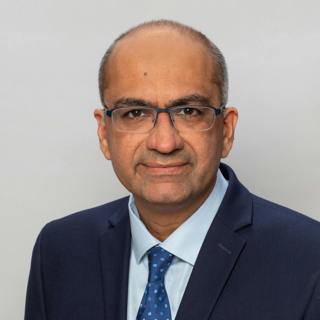
Ep. 518 Long-Term Outcomes of Prostatic Artery Embolization (PAE) with Dr. Shivank Bhatia
Do we finally have definitive data on the efficacy of prostate artery embolization (PAE)? Dr. Shivank Bhatia (interventional radiologist at University of Miami) joins host Dr. Michael Barraza to discuss the findings from his prospective 1,075 patient study on the long-term outcomes of PAE, the largest longitudinal, single-center, single-operator, prospective study in the United States. --- This podcast is supported by: RADPAD® Radiation Protection https://www.radpad.com/ Medtronic MVP https://www.medtronic.com/mvp --- SYNPOSIS Dr. Bhatia begins by sharing his early years of training, and the steps he took to become an expert in all things PAE. He also covers how he helped build the PAE program at University of Miami, sharing several pearls for young IRs and trainees that are interested in bringing new service lines to their institutions. Dr. Bhatia then talks through the details of the study that he spearheaded, and encourages everyone to tune in - physicians and patients alike. --- TIMESTAMPS 00:00 - Introduction 05:12 - Building a PAE Program 18:55 - PAE Procedure Technicalities 22:30 - Post-Procedure Meds and Care 25:13 - Study Details and Patient Demographics 27:36 - Procedure Time and Technical Success 28:32 - Safety and Efficacy of PAE 38:06 - PSA Levels and Prostate Cancer 40:42 - Urinary Retention and Treatment Prioritization 45:17 - Re-Intervention Rates and Medication Independence --- RESOURCES Pisco et al (2011) - Prostatic arterial embolization to treat benign prostatic hyperplasia: https://pubmed.ncbi.nlm.nih.gov/21195898/ Bhatia et al (2024) - Prostatic Artery Embolization: Mid- to Long-Term Outcomes in 1,075 Patients: https://pubmed.ncbi.nlm.nih.gov/39532156/
18 Feb 54min
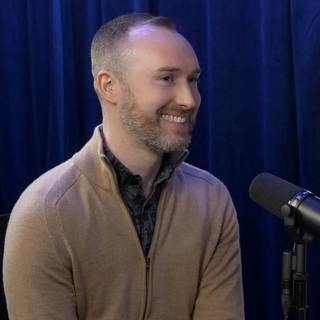
Ep. 517 Complex HCC Patients and the "Grey Zone": What to Do When You Don’t Know What to Do
Treatment of hepatocellular carcinoma (HCC), like that of many other cancers, spans a spectrum from curative to palliative intent. To explore the "grey zone" of treatment goals for intermediate-stage HCC patients, Dr. Sabeen Dhand interviews a panel of experts in the field: medical oncologists Dr. Adam Burgoyne and Dr. Lingling Du, along with interventional radiologists Dr. Kirema Garcia-Reyes and Dr. Zachary Berman. Physicians, nurses, nurse practitioners, and physician assistants can follow this link to earn CME / CE credits for completing an accredited learning activity related to this discussion: https://www.cmeuniversity.com/course/take/125739 --- This podcast is supported by an educational grant from AstraZeneca Pharmaceuticals and Boston Scientific. --- SYNPOSIS The discussion begins with an explanation of the Barcelona-Clinic Liver Cancer (BCLC) staging system. While this system takes into account helpful factors such as liver function, performance status, and tumor burden, it fails to fully capture the true heterogeneity of the HCC patient population. Additional considerations include tumor biology, response to previous treatments, and the location of metastases. The specialists then share their experiences in treating patients with comorbid gastrointestinal cancers and mixed tumors, discuss the benefits of an interventional oncology clinic setting, and highlight virtual opportunities for connecting with tumor boards. They also offer advice on patient education regarding treatment options. --- TIMESTAMPS 00:00 - Introduction to BCLC Staging 03:02 - Impact of Performance Status 06:29 - Predictors of Survival in HCC 09:51 - Palliative versus Curative Treatment Intent 13:55 - Comorbid and Mixed Gastrointestinal Cancers 16:51 - Adverse Effects of Treatment 20:37 - Interventional Oncology in the Clinic Setting 23:06 - Navigating Multiple Provider Viewpoints 28:01 - Complex Case Examples --- RESOURCES BCLC strategy for prognosis prediction and treatment recommendation: The 2022 update (Reig et al, 2022): https://www.journal-of-hepatology.eu/article/S0168-8278(21)02223-6/fulltext CME Accreditation Information: https://f7cae4ec-b69e-490d-9e0f-19b16a6f146d.usrfiles.com/ugd/f7cae4_a7c37ea3cd1b4d3fa53d5edf8dfe255b.pdf
14 Feb 39min
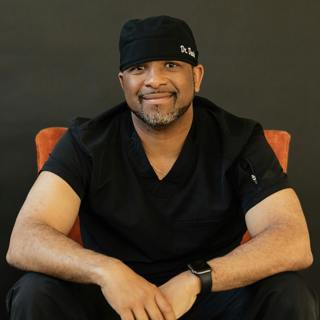
Ep. 516 Dialysis Procedures: New Tools for Better Outcomes with Dr. Ari Kramer and Dr. Omar Davis
Given the challenges that our dialysis patients face, how can we as providers stay sharp with the latest access techniques to help ensure the best possible outcomes? Dr. Omar Davis (interventional nephrologist) and Dr. Ari Kramer (general surgeon) join host Dr. Chris Beck to discuss advanced approaches to AV access and share their experiences with the FLEX Vessel Prep device. --- This podcast is supported by: VentureMed FLEX Vessel Prep https://www.venturemedgroup.com/ --- SYNPOSIS The doctors begin by describing how they create dialysis access and what they account for during the procedure. They then focus on the role of the FLEX VP system, its benefits, and how they use it in practice, touching on the latest clinical data. Dr. Kramer and Dr. Davis also stress the importance of mental health in dialysis care and share ways that we can better support our patients through difficult diagnoses and treatments. In fact, one of their patients, Fred Hill, authored the book “Dialysis Is Not Your Life,” which offers a unique perspective for patients feeling overburdened by dialysis, and the healthcare providers who treat them. The episode concludes with case presentations and practical guidance on when to use the FLEX Vessel Prep system. --- TIMESTAMPS 00:00 - Introduction 07:00 - AV Access and Procedures 10:58 - Case Walkthrough 14:19 - Balloon Angioplasty and IVUS 24:43 - Flex VP Device and Vessel Prep 35:03 - Algorithm and Reimbursement Challenges 39:51 - Device Usage and Techniques 46:58 - Clinical Data and Outcomes 01:01:59 - Case Studies --- RESOURCES Fred Hill, “Dialysis Is Not Your Life” Founder and Author: https://www.dialysisisnotyourlife.com/meet-founder.php “Dialysis Is Not Your Life” Book: https://www.amazon.com/DIALYSIS-NOT-YOUR-LIFE-Redefine/dp/B09L4XGGNX Novel Device Prior to Balloon Angioplasty for Dysfunctional Arteriovenous Access: Analysis of a Real-World Registry by Race and Sex Cohorts: https://www.openaccessjournals.com/articles/novel-device-prior-to-balloon-angioplasty-for-dysfunctional-arteriovenousaccess-analysis-of-a-realworld-registry-by-race-and-sex-16852.html FLEX Vessel Prep 12 Month AV Registry Data and 12 Month Belong PAD Data Shows Benefit to Micro-incisions Before Balloon or DCB Treatment: https://www.venturemedgroup.com/wp-content/uploads/2022/12/VEITH-Data-FINAL.pdf Angioplasty with novel, easy-to-use, bladed Flex Vessel Prep system “could replace standard of care”: https://www.youtube.com/watch?v=iRpkrURx1mc Surgical AVF Articles Atlas Condensed - sAVF Overview - Creation Maturation and Difficulties: https://docs.google.com/document/d/1f26FT65s03oZjjeZhBVy8auz0h8PTNvX3CWU5Xi_H5c/edit?usp=share_link Surgical AVF Articles Asif A, Early Arteriovenous fistula failure: https://drive.google.com/file/d/1zZEWgxsdBM4MKCQFjw0U04ra_hB9Ey_N/view?usp=share_link Surgical AVF Articles Asif A - Best Vascular Access in the Elderly - Time for Innovation: https://drive.google.com/file/d/1IpH-KnZyfN5Rqm_kxLnERnEJD6vcjAO8/view?usp=sharing Surgical AVF Articles EV Today - Managing Cephalic Arch Stenosis: https://drive.google.com/file/d/17yVd2M706YCtX-xTK6teesgZqzVIgUoN/view?usp=share_link VentureMed 2024 FLEX Vessel Prep System Reimbursement Guide: https://www.venturemedgroup.com/wp-content/uploads/2024/04/MMA-CTO-15690_FlexVesselPrepSystem-BillingGuide_Lv6-003.pdf BackTable VI Podcast Episode #139 - AV Fistula & Graft Maintenance with Dr. Ari Kramer: https://www.backtable.com/shows/vi/podcasts/139/av-fistula-graft-maintenance BackTable VI Podcast Episode #292 - Dialysis Interventions with Drug-Coated Balloons, Covered Stents and More with Dr. Ari Kramer: https://www.backtable.com/shows/vi/podcasts/292/dialysis-interventions-with-drug-coated-balloons-covered-stents-more
11 Feb 1h 12min
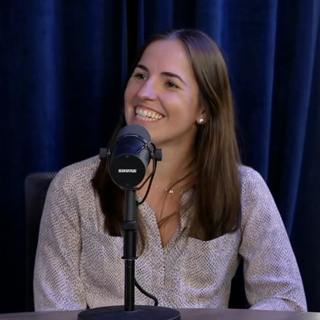
Ep. 515 Curative Intent Therapies for HCC: Today and Tomorrow
For hepatocellular carcinoma (HCC) patients who are not candidates for liver transplant or resection, lesion ablation can be a curative treatment. With multiple ablation options available and still under investigation, it can be challenging to navigate the differences between them. In this episode, Dr. Tyler Sandow hosts a discussion with interventional radiologists Dr. Kirema Garcia-Reyes, Dr. Sabeen Dhand, and Dr. Kevin Burns on the various ablation options for HCC and when to use each one. Physicians, nurses, nurse practitioners, and physician assistants can follow this link to earn CME / CE credits for completing an accredited learning activity related to this discussion: https://www.cmeuniversity.com/course/take/125738 --- This podcast is supported by an educational grant from AstraZeneca Pharmaceuticals and Boston Scientific. --- SYNPOSIS The doctors first discuss Barcelona-Clinic Liver Cancer (BCLC) Stage A patients, where lesion size and location are key factors in deciding between ablation and transarterial therapies. They then compare cryoablation and microwave ablation, highlighting that cryoablation offers better visualization and control of the ablation zone, while microwave ablation is more effective for treating larger lesions. Dr. Burns introduces histotripsy, a noninvasive treatment that uses ultrasound energy to mechanically ablate tumors. He shares his experiences as an early adopter of this technology and discusses how intraoperative cone beam CT can help treat lesions located near critical structures or those poorly visualized on ultrasound. Finally, Dr. Garcia-Reyes and Dr. Berman provide insights into patient selection, pre-procedural imaging, and technical tips for Y90. --- TIMESTAMPS 00:00 - Introduction 02:04 - Ablation vs Y90 in BCLC A Patients 05:58 - Same-Day Y90 15:55 - Y90 for Large Tumors 17:51 - Ideal Cases for Cryoablation 19:38 - Explanation of Histotripsy 32:09 - Procedural Specifics for Histotripsy 38:21 - Technical Tips for Y90 --- RESOURCES Including the Hollow Viscera (Stomach or Bowel) within the Ice Ball during Cryoablation: A Review of Adverse Events (Abramyan et al, 2024): https://www.jvir.org/article/S1051-0443(24)00681-X/abstract CME Accreditation Information: https://f7cae4ec-b69e-490d-9e0f-19b16a6f146d.usrfiles.com/ugd/f7cae4_a7c37ea3cd1b4d3fa53d5edf8dfe255b.pdf
7 Feb 52min
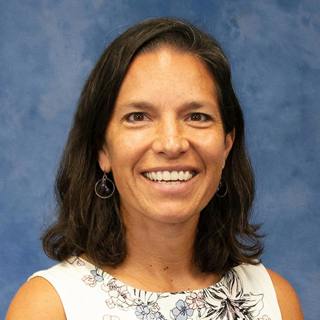
Ep. 514 Deep Sedation in IR: Intro to Ketamine with Dr. Amy Deipolyi
When deep sedation is required, it can be challenging to implement due to the difficulty of scheduling dedicated anesthesia coverage in the IR suite. Dr. Amy Deipolyi (interventional radiologist and Division Chief at Charleston Area Medical Center, WY) joins host Dr. Ally Baheti to explain an alternative approach to deep sedation through the use of ketamine. --- This podcast is supported by: Medtronic Abre Stent https://www.medtronic.com/en-us/healthcare-professionals/products/cardiovascular/deep-venous-stents/abre-venous-self-expanding-stent-system.html --- SYNPOSIS Dr. Deipolyi begins by sharing how she built a dedicated, academic IR program at a level 1 trauma center in West Virginia. The doctors then discuss the advantages of ketamine for deep sedation in the IR suite, and how Dr. Deipolyi gained administrative approval and implemented the change to achieve an alternative approach to deep sedation for interventional procedures. The discussion also includes how ketamine compares to traditional agents such as fentanyl and Versed. The episode concludes with Dr. Deipolyi’s practical advice to fellow IR’s interested in providing their patients deep sedation via ketamine and her ongoing and future research and outreach efforts. --- TIMESTAMPS 00:00 - Introduction 02:04 - Dr. Deipolyi’s Practice 14:32 - Overcoming Hurdles and Gaining Support 20:12 - Application and Patient Experiences 26:01 - Future of Deep Sedation in IR 28:55 - Conclusion
4 Feb 33min

Ep. 513 Combination Therapy and Clinical trials for Advanced HCC: What They Really Mean
In the past five years, the use of immunotherapeutic agents for advanced cancers has emerged as a promising alternative to tyrosine kinase inhibitors and chemotherapy, making it an exciting time to be practicing oncology. In this episode, Dr. Tyler Sandow interviews oncology experts about the landscape of advanced hepatocellular carcinoma (HCC) and the current state of immunotherapy treatments. He is joined by medical oncologists Dr. Jonathan Mizrah, Dr. Lingling Du, and Dr. Adam Burgoyne, as well as interventional oncologist Dr. Zachary Berman. Physicians, nurses, nurse practitioners, and physician assistants can follow this link to earn CME / CE credits for completing an accredited learning activity related to this discussion: https://www.cmeuniversity.com/course/take/125737 --- This podcast is supported by an educational grant from AstraZeneca Pharmaceuticals and Boston Scientific. --- SYNPOSIS Drs. Burgoyne and Mizrahi provide a primer on immunotherapy and explain how they communicate the principles of this treatment to their patients. Dr. Du discusses the Imbrave clinical trial and how recent studies have shown improved overall survival when immunotherapeutic agents are used, especially when multiple agents targeting various pathways are employed. When choosing between different regimens, the doctors consider factors such as the patient's underlying liver function, symptom burden, and prior treatments. Importantly, the doctors also discuss contraindications to immunotherapy, including a history of organ transplant, autoimmune disease, and poor performance status—all of which put patients at high risk for deterioration with this treatment. The treatment of patients with poor liver function remains controversial, as underlying cirrhosis may prevent the recovery of liver function. Dr. Berman outlines recent clinical trials studying the effects of transarterial chemoembolization (TACE) combined with immunotherapy. Finally, the doctors discuss the future of HCC treatment and the benefits of continued innovation in both interventional and medical oncology. --- TIMESTAMPS 00:00 - Introduction to Immunotherapy 04:32 - Notable Clinical Trials 13:39 - HCC Etiology and Immunotherapy Outcomes 18:43 - Contraindications for Immunotherapy 23:05 - Adverse Effects from Treatment 25:14 - Combination Therapy 36:22 - Considerations for Immunotherapy Dosing 40:26 - The Future of HCC Treatment --- RESOURCES Atezolizumab plus Bevacizumab in Unresectable Hepatocellular Carcinoma, IMbrave150 Trial (Finn et al, 2020): https://pubmed.ncbi.nlm.nih.gov/32402160/ Tremelimumab plus Durvalumab in Unresectable Hepatocellular Carcinoma, HIMALAYA Trial (Abou-Alfa et al, 2022): https://evidence.nejm.org/doi/full/10.1056/EVIDoa2100070 Nivolumab versus sorafenib in advanced hepatocellular carcinoma (CheckMate 459): a randomised, multicentre, open-label, phase 3 trial (Yau, 2022): https://www.thelancet.com/journals/lanonc/article/PIIS1470-2045(21)00604-5/abstract Nivolumab (NIVO) plus ipilimumab (IPI) vs lenvatinib (LEN) or sorafenib (SOR) as first-line treatment for unresectable hepatocellular carcinoma (uHCC): First results from CheckMate 9DW (Galle, 2024): https://ascopubs.org/doi/10.1200/JCO.2024.42.17_suppl.LBA4008 Randomized Phase 3 LEAP-012 Study: Transarterial Chemoembolization With or Without Lenvatinib Plus Pembrolizumab for Intermediate-Stage Hepatocellular Carcinoma Not Amenable to Curative Treatment (Llovet, 2022): https://pubmed.ncbi.nlm.nih.gov/35119481/ EMERALD-1: A phase 3, randomized, placebo-controlled study of transarterial chemoembolization combined with durvalumab with or without bevacizumab in participants with unresectable hepatocellular carcinoma eligible for embolization (Lencioni, 2024): https://ascopubs.org/doi/10.1200/JCO.2024.42.3_suppl.LBA432 CME Accreditation Information: https://f7cae4ec-b69e-490d-9e0f-19b16a6f146d.usrfiles.com/ugd/f7cae4_a7c37ea3cd1b4d3fa53d5edf8dfe255b.pdf
31 Jan 47min
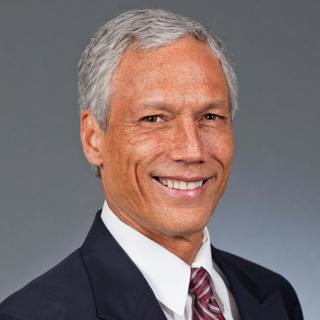
Ep. 512 The "Alzate Maneuver”: Flipping Retrograde Access with Dr. Gregg Alzate
Proximity to innovation often gives rise to further innovation. This trend is especially true in interventional radiology. Dr. Gregg Alzate (interventional radiologist in San Diego, California) joins host Dr. Ally Baheti to share his career pearls for early and mid-career IRs, and how he came to pioneer the Alzate Retrograde Antegrade Maneuver (A-RAM). --- This podcast is supported by: Reflow Medical https://www.reflowmedical.com/ --- SYNPOSIS Dr. Alzate starts by sharing his early influences, including his time with interventional radiology giant Dr. Harold Coons. The doctors also cover the importance of proper vessel access techniques, innovative approaches to limb salvage, and how to address complex chronic total occlusions (CTOs). Dr. Alzate then goes on to give us a thorough walkthrough of the A-RAM. The episode concludes with Dr. Alzate’s closing thoughts on being open to adopt new techniques, the impact of strong mentorship, and importance for consuming and sharing knowledge. --- TIMESTAMPS 00:00 - Introduction 03:05 - Dr. Alzate’s Journey 25:52 - A-RAM Technique 34:26 - CTO’s and Heavy Calcium 40:16 - Moral Injury in Medical Practice 43:35 - Honoring Dr. Harold Coons 46:23 - Closing Thoughts and Reflections --- RESOURCES Ohki, Takao et al. “Long-term results of the Japanese multicenter Viabahn trial of heparin bonded endovascular stent grafts for long and complex lesions in the superficial femoral artery.” Journal of vascular surgery vol. 74,6 (2021): 1958-1967.e2. https://www.jvascsurg.org/article/S0741-5214(21)01011-9/fulltext Kedora, John et al. “Randomized comparison of percutaneous Viabahn stent grafts vs prosthetic femoral-popliteal bypass in the treatment of superficial femoral arterial occlusive disease.” Journal of vascular surgeryvol. 45,1 (2007): 10-6; discussion 16. https://www.jvascsurg.org/article/S0741-5214(06)01612-0/fulltext
28 Jan 49min






















